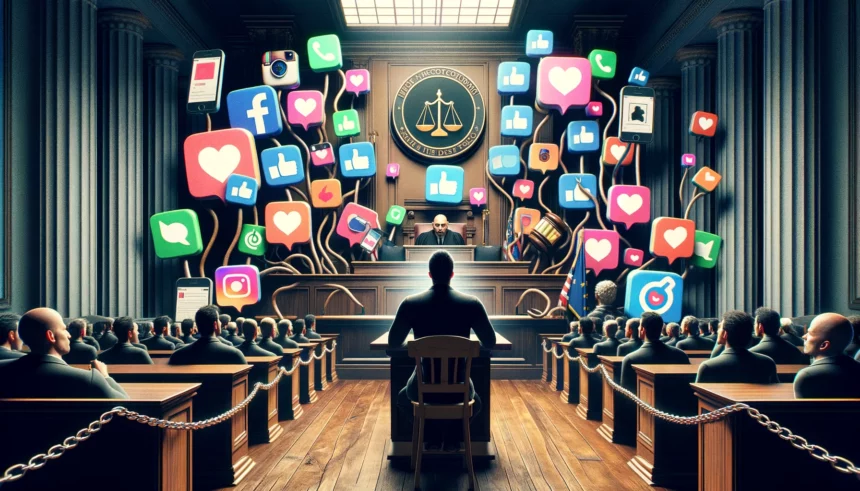In a groundbreaking legal move, Match Group, the behemoth behind the dating app sensations Tinder and Hinge, finds itself at the center of a class-action lawsuit. Filed on the symbolic date of Valentine’s Day in the federal court of Northern California, the lawsuit levies serious accusations against the company. It contends that Tinder and Hinge are intentionally designed to addict users, ensnaring them in an endless cycle of swipes and premium purchases under the guise of finding love. This case highlights a significant and controversial debate about the ethics of app design in the digital age, questioning whether the pursuit of profit is being placed above the well-being of users.
Essential Points of the Lawsuit:
- The legal action claims that Tinder, Hinge, and other apps under Match Group are laden with features that promote addiction, encouraging users to engage in a relentless swiping saga.
- Described as game-like, these features supposedly trap users in a cycle of spending to chase the elusive promise of romantic connections, prioritizing profit over genuine human interaction.
- Plaintiffs argue that the platforms employ psychological tactics to prod users into buying subscriptions, with the allure of potential matches dangled like a carrot on a stick.
- In response, Match Group has dismissed the lawsuit as “ridiculous,” maintaining that their platforms are designed to foster real-life connections rather than to merely keep users glued to their screens.
- The lawsuit surfaces amid growing concerns about tech addiction and its mental health repercussions, drawing a parallel with challenges faced by other tech behemoths over similar accusations.
Underlying Concerns and Implications:
At the heart of the lawsuit is an unsettling question: Are dating apps like Tinder and Hinge designed to exploit users’ psychological vulnerabilities? The plaintiffs suggest that Match Group’s business model thrives on monopolizing users’ attention and encouraging a never-ending cycle of swiping and spending in the quest for love.
Match Group’s rebuttal emphasizes their aim to facilitate meaningful relationships, a claim that stands in stark contrast to allegations of exploiting user engagement for profit. The lawsuit paints a picture of app usage bordering on gambling, with users caught up in the thrill of the swipe, where the process becomes more important than the outcome.
Broader Ramifications:
- Digital Well-being: This case might spur a wider discussion on the responsibility of app developers to safeguard users’ psychological health, potentially leading to the introduction of features aimed at promoting healthier usage patterns.
- Regulatory Attention: The lawsuit could attract the gaze of regulators, resulting in stricter guidelines or regulations to protect consumers from exploitative practices that could harm mental health.
- Consumer Awareness: Heightened publicity around this case may raise awareness about the potential downsides of prolonged app usage, fostering a demand for more ethical practices in the tech industry.
- Industry Standards: A move towards establishing industry-wide best practices for app design could emerge, balancing commercial aims with user well-being and possibly curbing features that drive compulsive behavior.
- Market Response: Competitors might leverage this situation to differentiate themselves by underscoring their ethical design principles, potentially leading to innovations aimed at improving user experience without sacrificing health and well-being.
This lawsuit against Match Group marks a pivotal moment in the digital dating sector, probing the moral limits of app design and monetization. It highlights a growing call for digital products that respect, rather than exploit, human psychology, and relationships. The outcome of this legal challenge could set significant precedents for the online dating industry and beyond, shaping how tech companies engage users while considering their mental health and well-being.
















